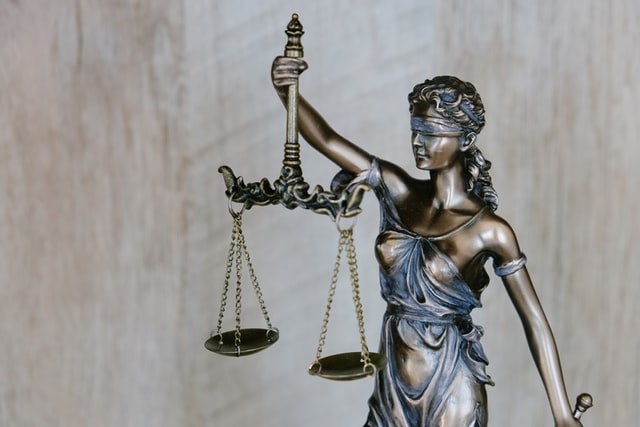
A General Explanation of Power of Attorney (POAs)
This article has been reviewed by a practicing attorney in 2020.
This content is not intended to be a substitute for professional legal advice. Always seek the advice of an attorney or another qualified legal professional with any questions you may have regarding your situation.
You may have an estate planning instrument, such as a will or trust, that explains how you want your assets distributed after your death. While this is a great step towards creating your comprehensive estate plan, you may also want to consider creating another document, a power of attorney (“POA”), which can benefit you and your loved ones during your lifetime. A POA designates a person to make decisions on your behalf should you become incapable of making them yourself.
What is a Power of Attorney?
A POA is a legal document in which a “grantor” (also referred to as a “principal” or “donor”) assigns specific powers over their affairs to an “attorney-in-fact” (also called an “agent”). Through the POA, the attorney-in-fact is authorized to act on the grantor’s behalf in whatever manner the POA designates.
Why have a POA?
A POA is a helpful tool for elders and caregivers alike. As a person ages, their mental or physical capacity may diminish, and they may become unable to care for themselves. Many elders require assistance with doctor’s appointments, medications, financial transactions, as well as managing their household. Caretakers generally assume the role of helping their elder with these tasks when it becomes difficult for the elder to perform them alone. Without a POA, a caretaker may face barriers to helping their elder with these tasks, such as not having access to or decision-making authority over their elder’s financial or health care matters. However, if a caregiver possesses a POA, they can help their elder manage their affairs without these obstacles, providing both the elder and caregiver peace of mind.
Unfortunately, many elders see creating a POA as an immediate loss of independence because they are granting someone else control over some or all their affairs. For this reason, elders may become anxious or angry when family members attempt to discuss POAs. All parties may avoid a difficult discussion regarding a potential POA, which could have serious consequences in the future. It is crucial that caretakers discuss POAs with their elder while their loved one still has the requisite mental capacity to create a POA (more on this below). Many people wait until mom falls behind on the house payment, or dad takes a midnight walk and loses his way home before discussing POAs. Unfortunately, in these circumstances, it may be too late for mom or dad to create a POA. While it may be difficult, having the uncomfortable conversations early will only help your elder in the future. A POA may provide a caretaker with the ability to intervene when their elder becomes incapacitated and ensure that their loved one is provided for and safe.
What is incapacitation and how is it determined?
As discussed below, depending on the type of POA, an attorney-in-fact may act on the grantor’s behalf either before or after (or before and after) a grantor is “incapacitated.” Incapacitation is an important concept to understand as it is a key element in many POAs. Generally, a person is considered incapacitated when they are no longer able to manage their own affairs or maintain their physical well-being.
Each state has its own definition of incapacitation. Common medical diagnoses such as Alzheimer’s and dementia usually result in a declaration of incapacity. A person may also be declared incapacitated if they are unconscious, in a coma, or have other mental illnesses.
Generally, a court will make the determination that a person is incapacitated. Each state has its own laws for determining incapacitation. In many circumstances, the elder will be evaluated by medical professionals to determine if they are incapacitated and a court will review the opinions of said medical experts. In some cases, a court may retain a psychiatrist or psychologist to assist in the determination and the court will consider the opinions of the mental health experts.
When a person is declared incapacitated, they lose the right to make decisions concerning their personal health and wellbeing as well as their personal finances. If the incapacitated individual does not have a POA granting a chosen attorney-in-fact power over their affairs, the court will appoint a “guardian” (also called a “conservator”) to manage the incapacitated individual’s affairs. However, if the incapacitated person has a POA, the POA governs who manages their affairs. Importantly, a POA allows you to choose who manages your estate when you are unable to do so, rather than relying on the court to designate someone to do the same. This can save your loved ones the time and headache of going to court to appoint a guardian over you.
Understanding the 4 different types of POAs
While you may be familiar with the term, “power of attorney,” there is not simply one type of POA. The 4 categories of powers of attorney are discussed below.
1. Limited
A limited POA, sometimes referred to as a “special” POA, provides the attorney-in-fact with specific powers, which are limited to a certain area. For example, one type of limited power a grantor may give to an attorney-in-fact is the authority to execute real estate transactions. The attorney-in-fact has the power to buy or sell real property on behalf of the grantor, however, the attorney-in-fact’s power over the grantor’s affairs ends there.
2. General
The opposite of the limited POA is the general POA. A general POA grants an attorney-in-fact the authority to perform almost any act as the grantor. This is the broadest form of a POA as it grants another person the authority to make any decision the grantor would make on their own behalf. Importantly, a general POA is only in effect until the grantor’s incapacitation or death.
3. Durable
A durable POA may be limited or general. The key characteristic of the durable POA is that it is effective both before and after a grantor becomes incapacitated. Therefore, an attorney-in-fact with a durable POA may act on behalf of the grantor when the grantor is competent and after they become incapacitated. The attorney-in-fact’s powers do not change with the grantor’s physical or mental status.
4. Springing
A springing POA may also be limited or general. However, unlike the durable POA, a springing POA is only effective upon the grantor’s incapacitation. The attorney-in-fact has no power over the grantor’s affairs until the grantor becomes incapacitated.
Common Powers Given in POAs
Financial
A common power given in a POA is the power to manage the grantor’s finances. In these circumstances, the chosen attorney-in-fact would provide the grantor’s financial institutions with the POA and would then have the same powers as the grantor to conduct business with that institution on the grantor’s behalf. This may include the attorney-in-fact to:
- Access the grantor’s financial accounts to pay for the grantor’s healthcare, housing needs, and other bills.
- Make investment decisions on the grantor’s behalf.
- Manage the grantor’s assets and debts.
- Apply for government benefits, such as Medicaid, Social Security, and Veteran’s Benefits on the grantor’s behalf
- File the grantor’s taxes.
Health Care
Like a financial POA, a POA regarding health care powers should be provided to the grantor’s healthcare providers. A POA concerning health care decisions may grant the attorney-in-fact the following powers to:
- Consent to giving, withholding, or stopping medical treatments, services, or diagnostic procedures (including hospital care, surgery, psychiatric treatment, etc.).
- Choose which doctors and healthcare providers the grantor uses.
- Designate where the grantor lives (at home with a caretaker, a residential long-term care facility, a nursing home, etc.).
- Decide what the grantor eats.
- Choose who bathes the grantor.
Importantly, as the grantor, you decide what powers to grant and to whom.
Things to Consider
If you are considering creating a POA, there are some chief issues of which you should be mindful.
Mental Capacity
First and foremost, you must have the required mental “capacity” to execute a POA. “Capacity” is a legal term meaning you have the ability, capability, or fitness to do something. Here, you must be competent and have the mental capacity required to create a POA. Competency requirements vary by state, but generally, you must be capable of understanding and appreciating the extent and effect of the POA as if you were signing a contract. This means you must be able to understand the benefits, risks, and effect of signing the document.
Choosing an Attorney-In-Fact
One of the most important decisions you will make when creating your POA is choosing your attorney-in-fact. This person will be expected to place your interests above their own, which is why it is crucially important for you to choose someone you trust for this position.
Defining Incapacitation
As you likely gathered above, a grantor’s potential incapacitation may be a key element in a POA. Therefore, it would also be prudent to include in your POA a detailed explanation concerning how your incapacity would be determined (for example, stating that your primary care physician must perform an examination, declare you incapacitated, and write a letter to your attorney-in-fact stating the same).
Consulting an Attorney
If you or a loved one are considering creating a power of attorney, it would benefit you to consult a local attorney who can explain your state’s laws concerning competency and incapacitation. An attorney who understands your unique circumstances can also provide advice on the best type of POA for you.
Conclusion
In conclusion, creating a Power of Attorney (POA) is a critical step in ensuring that your affairs are managed according to your wishes, especially in the event of incapacitation. Whether you opt for a limited, general, durable, or springing POA, the importance of selecting someone you trust as your attorney-in-fact cannot be overstated. Remember, the goal is to make decisions now that will protect you and your loved ones in the future. Consulting with a knowledgeable attorney can provide you with the guidance needed to navigate your state’s laws and create a POA that best meets your needs.
Sources:
- How to Avoid Problems Due to Aging Incapacity: The (Better) Durable General Power of Attorney, Better Health While Aging, betterhealthwhileaging.net
Related Articles

Trusts: What is One and How do They Work?
Estate planning is an integral part of planning for seniors. There are many different forms of estate planning and various tools available to use. One estate planning tool that can be helpful for many seniors is a trust. They can serve many different purposes and are a great estate planning tool, regardless of your estate’s […]

Burial Insurance: Everything You Need to Know
If you have an elderly loved one, you may be considering burial insurance. This is a type of life insurance that specifically covers final expenses. A 2020 report on life insurance policyholders found that 84% of those that buy life insurance, do so to cover end-of-life expenses. Considering that the majority of people who have […]

Where There’s a Will, There’s a Plan
This article has been reviewed by a practicing attorney in 2020 This content is not intended to be a substitute for professional legal advice. Always seek the advice of an attorney or another qualified legal professional with any questions you may have regarding your situation. There are many types of estate planning documents you can […]

Elder Law Attorneys: A Comprehensive Guide
If you are someone who is taking care of a senior or has an elderly loved one, you should consider working with an elder law attorney. Though you may not expect it, individuals begin to face new and more complex legal concerns as they get older. Actions that may have seemed trivial when they were […]

Transfer on Death Deeds: A Complete Overview
Deciding how you want your assets and estate distributed on your death can be an emotional task. Analyzing the legal mechanisms to accomplish this task can be overwhelming and exhausting. You want to be sure your assets will be distributed in accordance with your final wishes, but you also do not want to burden your […]

Lady Bird Deeds: A Complete Overview
This article has been reviewed by a practicing attorney in 2020. This content is not intended to be a substitute for professional legal advice. Always seek the advice of an attorney or another qualified legal professional with any questions you may have regarding your situation. A deed is a formal legal document that, when signed […]